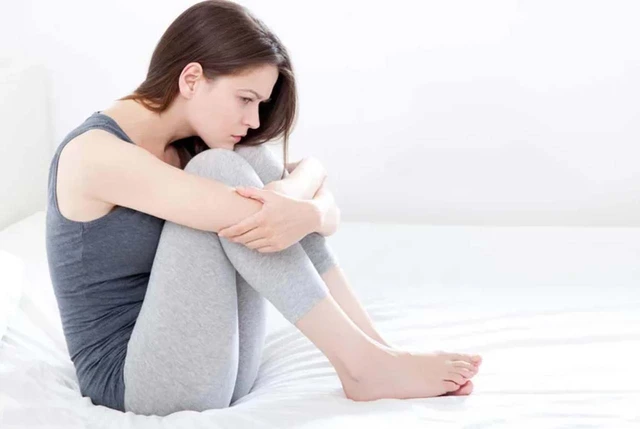Understanding Menopause and Vaginal Irritation
As a woman, I know how challenging menopause can be. One of the most uncomfortable symptoms many of us experience during this time is vaginal irritation. It's essential to understand the causes and treatments for this issue, so we can maintain our quality of life during this significant transition. In this article, I'll be discussing eight aspects of vaginal irritation in menopause, providing you with the knowledge and tools to manage this symptom effectively.
Causes of Vaginal Irritation in Menopause
Before delving into the treatments, it's crucial to understand why vaginal irritation occurs during menopause. There are several reasons why menopausal women experience this issue, and I'll be discussing four main causes in this section.
Hormonal Changes
The primary cause of vaginal irritation during menopause is hormonal changes. As estrogen levels decrease, the vaginal tissues become thinner, drier, and less elastic. This change can lead to itching, burning, and discomfort during intercourse. The lack of estrogen also causes the vaginal pH to become more alkaline, creating an environment where harmful bacteria can thrive and potentially cause infections.
Decreased Lubrication
During menopause, our bodies produce less natural lubrication, which can contribute to vaginal irritation. The decrease in lubrication can make the vaginal tissues more susceptible to injury and inflammation, leading to discomfort and increased sensitivity.
Infections
As I mentioned earlier, the change in vaginal pH can cause an imbalance of bacteria, leading to infections such as bacterial vaginosis or yeast infections. These infections can cause itching, burning, and a change in vaginal discharge, further contributing to vaginal irritation during menopause.
Medications and Allergens
Some medications, such as allergy and cold medicines, can cause vaginal dryness as a side effect. Additionally, certain products like soaps, laundry detergents, and feminine hygiene products can contain allergens and irritants that can cause or exacerbate vaginal irritation in menopausal women.
Treatments for Vaginal Irritation in Menopause
Now that we understand the causes, let's discuss the various treatment options available for managing vaginal irritation during menopause. I'll be covering four main treatments that can help alleviate this uncomfortable symptom.
Over-the-Counter Moisturizers and Lubricants
One of the easiest ways to alleviate vaginal dryness and irritation is to use over-the-counter vaginal moisturizers and lubricants. These products can help restore moisture to the vaginal tissues, reducing discomfort and making intercourse more comfortable. It's essential to choose a water-based, fragrance-free product to avoid further irritation.
Vaginal Estrogen Therapy
For more severe cases of vaginal irritation, your doctor may recommend vaginal estrogen therapy. This treatment involves applying a low-dose estrogen cream, tablet, or ring directly to the vaginal tissues to help restore estrogen levels and alleviate symptoms. It's essential to discuss this option with your doctor, as it may not be suitable for everyone.
Oral Hormone Replacement Therapy (HRT)
If vaginal irritation is accompanied by other severe menopausal symptoms, your doctor may suggest oral hormone replacement therapy (HRT). This treatment involves taking estrogen and progestin to help balance hormone levels and alleviate symptoms. However, HRT is not suitable for everyone and may carry some risks, so it's essential to discuss this option with your doctor.
Lifestyle Changes
Finally, making some simple lifestyle changes can help reduce vaginal irritation during menopause. These changes include staying well-hydrated, wearing breathable cotton underwear, avoiding harsh soaps and products, and using a gentle laundry detergent. Additionally, incorporating regular exercise and a healthy diet can help improve overall health and well-being during menopause, which may help alleviate symptoms.
In conclusion, vaginal irritation is an uncomfortable but common symptom of menopause. By understanding the causes and exploring various treatment options, we can manage this symptom and maintain our quality of life during this significant life transition. As always, it's essential to consult with your healthcare provider before starting any new treatment or making significant lifestyle changes.


Alex Hughes
May 28, 2023 AT 07:45Also, water-based lube isn't just for sex-it's a daily moisturizer if you treat it right. I use it like lotion. No shame.
Hubert vélo
May 28, 2023 AT 18:28Kalidas Saha
May 28, 2023 AT 23:24Marcus Strömberg
May 29, 2023 AT 08:30Matt R.
May 30, 2023 AT 12:39Wilona Funston
May 30, 2023 AT 20:57Ben Finch
May 30, 2023 AT 22:31Naga Raju
May 31, 2023 AT 04:16Dan Gut
June 2, 2023 AT 03:00Jordan Corry
June 3, 2023 AT 19:25Mohamed Aseem
June 4, 2023 AT 10:27Steve Dugas
June 4, 2023 AT 14:21Paul Avratin
June 6, 2023 AT 04:05Brandi Busse
June 6, 2023 AT 15:43Colter Hettich
June 8, 2023 AT 10:48